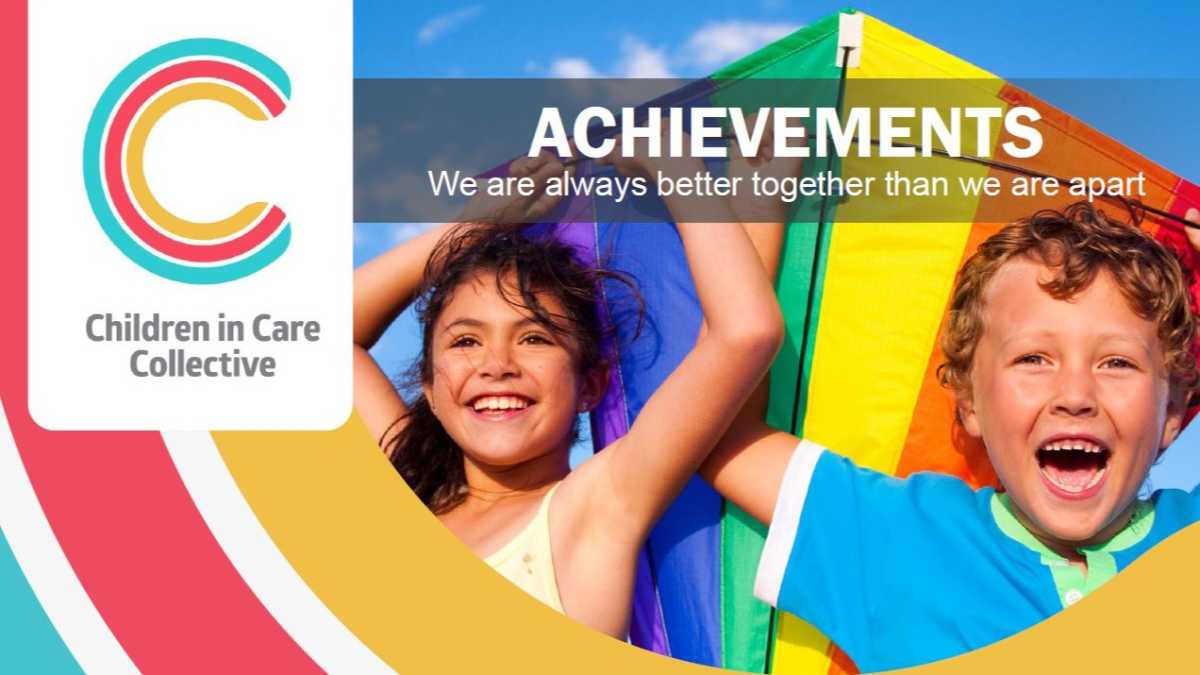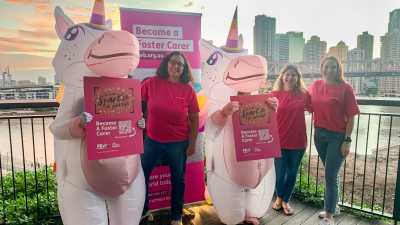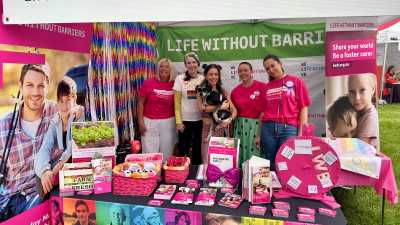We are always better together than we are apart.

The Children in Care Collective is an interagency Think Tank that advocates to improve outcomes for children in out-of-home care!
Purpose
The Children in Care Collective (The Collective) is made up of out-of-home care service providers, practitioners, and academics in Australia. The Collective was formed in 2016 to share information and work collaboratively and proactively on a range of issues for children and young people with complex needs living in out-of-home care.
The Collective works towards its vision of success: An effective and well-resourced service system supports children and young people with complex needs to grow up safely and well in out-of-home care, confident that their rights and wellbeing are protected and prioritised. Claire Robbs, Chief Executive at Life Without Barriers said;
“Children always come first. We are all working towards the best possible outcome for children in care."
“Foster carers play a really important part in a child’s life, as do all the providers we have partnered with. The Collective network of service providers, practitioners, and academics work in a truly collaborative and proactive way to take steps everyday to improve the lives of children living in out-of-home care.” Ms Robbs said.
The Collective's work is built around four goals and steps towards achieving its vision of success.
Members of the Collective are: Allambi Care; Anglicare NSW South, NSW West and ACT; Anglicare Sydney; CareSouth; Key Assets; Life Without Barriers; Mackillop Family Services; Marist180; Settlement Services International; Institute of Child Protection Studies (ICPS) - Australian Catholic University; Australian Centre for Child Protection (ACCP) - University of South Australia.
Our Goals
1. To build our practice capabilities based on academic and expert practitioner evidence.
The Collective has hosted 22 guest speakers at its bi-monthly meetings, providing a valuable opportunity for its members to take time out to learn about new approaches to caring for children and young people with complex needs.
The broad range of speakers presented on topics including viewing child protection and out-of-home care through a child’s rights lens, systems improvements in working with Aboriginal children, families and communities and ACCOs and wrap-around models of care for children with complex needs.
Presentations by The Collective representatives have included:
The challenge of program fidelity;
The importance of adopting a public health approach to child protection to alter the risk profile of the whole population and protect all children by ensuring safe and supportive environments ;
An innovative approach to education for young people in residential care, and ;
A new, evidence-based approach to strengthening prevention and responses to sexual exploitation, harmful sexual behaviours and dating violence for young people in residential care.
2. To partner with others to improve outcomes for children and young people in out-of-home care.
The Collective has held three forums with expert speakers and invited guests. Two of these included expert academic speakers discussing effective responses to and caring for children with harmful sexual behaviours.
Speakers included Professor Simon Hackett from Durham University who is an international expert on child maltreatment in its various forms and professional responses designed to safeguard children’s welfare; Professor Helen Milroy, previously a Commissioner with the Royal Commission into Institutional Responses to Child Sexual Abuse and a pioneer in research, education and training in Aboriginal and child mental health, and recovery from grief and trauma; Professor Rachel Skinner, a teaching and research clinical academic in the Discipline of Child and Adolescent Health at the University of Sydney.
The third forum was a roundtable with the CEOs of AbSec and Link-Up (NSW) focused on moving from discussion to practice in returning Aboriginal children to the care of ACCOs.
The Children in Care Collective approached the Australian Tax Office (ATO) to clarify non-taxable expenses incurred by fosters carers supporting more complex children. The aim was to have a system wide level agreement on these expenses, rather than agencies needing to obtain individual advice as was currently occurring. The ATO reviewed a checklist of items developed by the Collective and acknowledged that all would be acceptable non-taxable allowances that may be paid to carers of children with complex needs.
3. To advocate to ensure the rights of all children are recognised and respected, prioritising the safety and wellbeing of children and young people in care with complex needs.
The Collective has made 12 submissions on policy and legal issues, participated in consultations on key topics such as on the successor plan for the National Framework for Protecting Australia’s Children, regulating child safe organisations in New South Wales, advocating against the increase in fees for social work degrees and working with the NSW Department of Education to ensure its new Student Behaviour Management Strategy accounts for the particular needs of children in care.
Raising the age of criminal responsibility, extending care to 21 years and improving after care supports are core advocacy work for The Collective.
4. To establish a national network of service providers, practitioners and academics working collaboratively and proactively to improve the care of children with complex needs living in out-of-home care.
Member agencies are both small and large providers of out-of-home care providing care in metropolitan and regional centres in several states and territories. At least two agencies have a national presence. Two academic centres from world renowned universities are also members.
The membership of The Collective brings a unique combination of practitioner and academic wisdom and experience and an understanding of the patchwork of child protection legislation and practice across Australia.
The Collective has drawn on this expertise to work with the Commonwealth as well as State and Territory governments on implementing recommendations from the Royal Commission into Institutional Responses to Child Sexual Abuse and raising issues with practice frameworks and policy settings.
Members of The Collective continue to meet with government ministers and senior government officials across the country.
Rob Ryan, Chair of the Children in Care Collective shared that; “It is amazing to see the collaborative achievements of the Children in Care Collective over the last few years. The work we have accomplished is a testament to the value of a collective approach to topics that can make a big impact for the children and communities we support."
"Everyone’s time is precious and being able to harness our energy and focus attention demonstrates that we are always better together than we are apart.”


